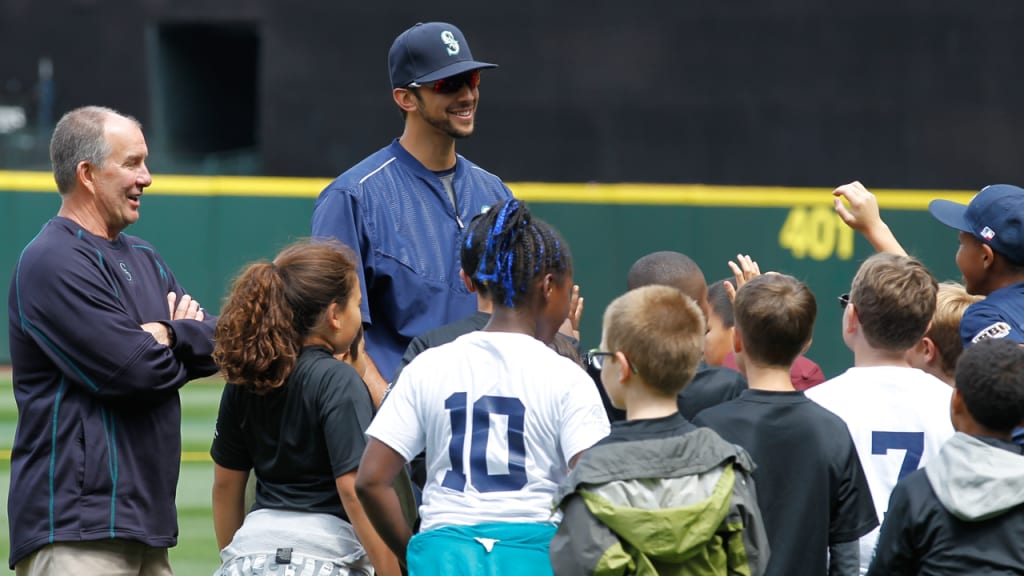
SEATTLE -- Don Hooton Jr. stood in front of a group of 8-12-year-olds sitting in the stands up the first base line at Safeco Field tasked with talking to them about performance enhancing drugs. So he started with a story about his younger brother Taylor Hooton's high school years.
"He wanted to look better, he wanted to put on muscle, he wanted to make the varsity team," Hooton told his audience. "So he made an uneducated decision, like so many of our young people do. When he was in high school he began using anabolic steroids. So the first message that I want to leave you with is just after his 17th birthday, he was dead."
That got their attention. Hooton, vice president of the Taylor Hooton Foundation, came to Seattle Monday as a part of the National PLAY Campaign. The Professional Baseball Athletic Trainers Association started the initiative to promote healthy living and combat obesity in children. The Taylor Hooton Foundation's message paired easily with PBAT's efforts. Together they tell kids that with a healthy lifestyle, they don't need steroids. The campaign makes stops in all 30 Major league ballparks.
"Literature suggests ages 12 [and up] are starting to use performance enhancing drugs, but certainly within high school and definitely in college," said Dr. Kelsey Erickson, a research fellow at Leeds Beckett University who studies PED use. "We're starting to finally appreciate that it's not isolated to the elite levels, nor is it isolated to sport."
The rest of Hooton's speech was lighthearted and interactive.
Then Brian Apling from the Henry Schein Cares Foundation gave them tips for creating healthy habits. After the talks, the kids got on the field to work out with Robinson Canó, Charlie Furbush, Tom Wilhelmsen and Steve Cishek.
"The biggest thing is they're so much into video games and their cell phones and watching TV, and they don't get outside anymore and play," Mariners head athletic trainer Rick Griffin said. "What we try to do is just deliver a message to them that there's a lot of things that they need to get more active and actually involved with. Go outside and play soccer and play tag and play dodgeball. And just get outside and get away from sitting around all day playing video games."